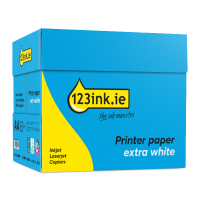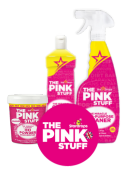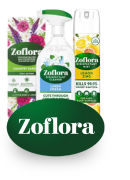Indoor air quality is important when we think about health, as well as comfort, in our homes. Not only are airborne viruses a cause of concern, but also other indoor pollutants we breathe in daily. Indoor pollution refers to dust, dirt, or gases that circulate the air in your home, workplace or school environment. In fact, indoor air can be five times as polluted as outdoor air. This is because indoor air is not circulated as much as the outside air, and so it allows many airborne pollutants to thrive. This can trigger respiratory infections, neurological problems, or aggravate symptoms in asthma sufferers. Thankfully, air purifiers are an effective tool to combat indoor air pollutants. This ensures you, your family, colleagues or students are breathing clean air which has a positive influence on your health.
Air purifiers have become a popular solution to minimise the effects of indoor pollution. Purifiers can circulate clean air in a room, reducing the chances of health issues caused by indoor pollutants. In particular, air cleaners with HEPA technology filters can remove 99.7 per cent of the airborne particulate matter (PM) circulating in your home, workplace or school environment.
What are the health benefits of an air purifier?
-
Reduces the spread of airborne viruses
Airborne viruses such as the common cold or the flu are spread through tiny pathogens floating around the air. Because everyone is breathing the same air that’s infected with bacteria and viruses, it’s likely to spread to each person in the room. This is why the Irish government are recommending that each workplace, school and creche is equipped with a HEPA filter air purifier. Air purifiers with HEPA filters capture these bacteria and viruses, reducing the risk of getting sick.
-
Relieves symptoms of asthma
Indoor pollutants such as pet hair, pollen, or dust mites are common irritants for asthma sufferers. They can disrupt their airways, causing difficulty breathing. Many breeds of dogs and cats shed throughout the year, leaving pet hair to pollute the air. Pollen particles can also be a concern for hay fever sufferers and asthmatics. Pollen can ether a room through an open window and travel with the breeze. Dust mites are the most common indoor allergens, thriving in a humid environment. Air purifiers can recycle this air and leave it free from these irritants.
-
Eliminates harmful chemicals entering indoors
External pollutants such as nitrogen dioxide and carbon monoxide can easily enter our homes or businesses through an open door or window. As well as this, the atmosphere inside homes, businesses and schools can be polluted with toxins from several cleaning agents. Many regular household cleaners contain toxic chemicals such as ammonia, chlorine, and phthalates. You can remove these chemicals in the air effectively for healthier airflow.
-
Neutralises unpleasant odours and smoke
Common household odours can be eliminated such as cooking spices, laundry or smoke. Air purifiers absorb the smell, ensuring that your room is fresh and clean. For an air purifier to tackle smoke, it requires an activated carbon filter and a true HEPA filter. The carbon filters can absorb any gas and liquid molecules that make up smoke and its distinctive smell. The HEPA filters are capable of trapping 99.97% of particles as tiny as 0.3 microns in size. This means that a tobacco smoke particle, which is around 1.0 micron can easily be trapped. This contributes to less of a smell of smoke in the room as well as less second-hand smoke being taken in from the environment leading to fewer long-term effects.
-
Helps with dust allergies, mould spore allergies and hay fever
Indoor allergens such as dust, mould spores and pollen coming in from outdoor can trigger allergies causing runny nose, sneezing, watery eyes or coughing. Air purifiers can help relieve the symptoms by trapping and preventing these allergens from reaching you, encouraging relief from symptoms and ultimately better sleep.
Radon is a naturally occurring radioactive gas that results from the decay of uranium in rocks and soils. The gas is colourless, odourless and tasteless and can only be measured using special equipment. In the open air, radon is harmless. But in an enclosed space such as a house, it may build up to an unacceptably high level. Ireland has the eighth-highest average concentration of radon in the world [WHO, 2009]. Radon decays to form tiny radioactive particles, some of which stay suspended in the air. When you inhale these particles, they give a radiation dose that may damage your lungs. According to the World Health Organisation, radon is estimated to cause between 3% to 14% of all lung cancers in a country, depending on the national average radon level and smoking prevalence. In Ireland, it is estimated that exposure to radon accounts for approximately 300 lung cancer cases each year. (The Environmental Protection Agency (EPA). Air cleaners with an activated carbon filter can help to remove this harmful gas air and promote airflow. However, air filtration should not be your only method for radon mitigation.
Common questions
Can air purifiers help protect against viruses?
Air purifiers equipped with HEPA filters are recommended for reducing the risk of viruses. HEPA filters comprise multi-layered meshes made of fine fibreglass threads, thinner than strands of hair, ideal for trapping airborne viruses such as the coronaviruses.
Do all air purifiers help eliminate smoke?
Not all air purifiers help eliminate smoke. An air purifier can help combat smoke when it has these two parts: A HEPA filter and an activated carbon filter. An air cleaner must eliminate both the airborne particles that can form visible smoke and the microscopic particles in the odours to fully eliminate it.
Are air purifiers good for allergies?
Yes, air purifiers are effective at relieving the symptoms of allergies. The specialised HEPA filters trap dust, pollen and other pollutants floating around in the air we breathe, allowing you to breathe cleaner, unpolluted air.
Can an air purifier be used as a cooling fan in summer?
Yes, as air purifiers act as fans that circulate air that are equipped with filters. If the airflow direction of the fan is in your direction, you may feel cooler. However, an air purifier can’t directly change a room’s temperature (because it is actually a fan), but the process of moving air will make the room cooler.
Can an air purifier help with mould?
Yes, an air purifier equipped with a HEPA filter can help to trap the mould spores circulating in the air and reduce their spread. This is useful if a member of your household has a mould allergy, as it will keep the concentration of mould spores low. However, a dehumidifier is better at preventing the build-up of excess moisture in the air which causes mould.
If you have any further questions in regard to air purifiers and filters, don’t hesitate to get in touch!

















.png)







